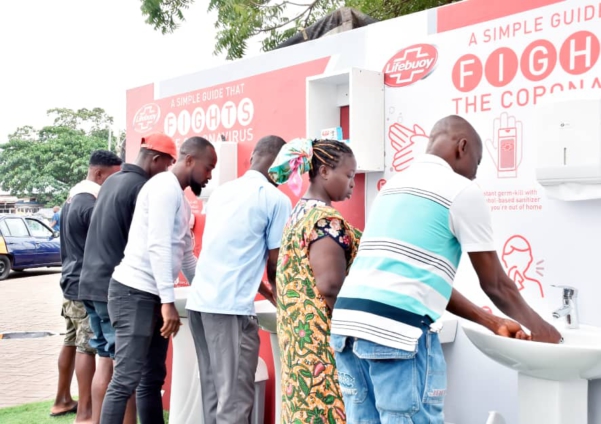Hygienic practices and environmental cleanliness is the only viable and best defence against the spread of the novel coronavirus and other communicable diseases, Felix Gbevillah, a Programme Officer at Water Aid Ghana, has said.
“Hygiene Behaviour Change is central to the prevention of infections and transmission of diseases including; Covid-19.
"Facts about the mode of transmission of Covid-19 are still emerging, but what is certain, however, is that handwashing with soap under running water can minimise the rate of infection and transmission,” he added.
He, therefore, called on Ghanaians to imbibe in themselves the habit of good hygiene, sanitation and environmental cleanliness practices to protect themselves from contracting diseases and infections particularly the deadly Covid-19.
The programme Officer made the call at Paga in the Kassena-Nankana West District of the Upper East Region, at a two-day technical training and hygiene campaign workshop.
The workshop, meant to prepare participants for the implementation of a Hygiene Behaviour Change (HBC) initiative, was organized by Water Aid Ghana, hygiene and sanitation focused organisation, with funding from the Department for International Development (DFID) of the United Kingdom, for selected staff of the Kassena-Nankana and Bongo Health Directorates.
The training was, therefore, to equip the stakeholders with the needed communication strategies to roll out the clean community campaign as part of measures to cause a positive change in people’s behaviour and contribute to fighting the spread of the virus.
The project dubbed, “Clean Community Campaign”, was initially implemented in the Wa Municipality in collaboration with the Wa Municipal Health Directorate, and is currently being implemented in some districts across the country including; the Bongo, Kassena-Nankana West, Nanumba South, Kwahu Afram Plains North Districts and Ablekuma.
Mr Gbevillah said changing people’s behaviour was difficult but not impossible and required a multifaceted approach to understanding the values of the people before building a campaign message with creativity and innovation to convince them to change.
The Programme Officer said the clean community campaign, which would be implemented by the various health directorates in collaboration with the Assemblies at both the health care facilities and community levels, would employ the ‘Assess, Build, Create, Deliver and Evaluate’ (ABCDE) approach to design the hygiene behaviour change campaign.
Mr Gbevillah noted that the project would not only contribute to minimizing the spread of coronavirus, but would instil Water, Sanitation and Hygiene (WASH) standards in people and communities and help attain the Sustainable Development Goals (SGDs) by 2030, particularly goals three and six.
Ms Fauzia Aliu, Policy Officer, Water Aid Ghana, said for stakeholders to achieve the needed impact of behavioural change, a paradigm shift of the campaign messages from health benefits centred to motivational messages had to be made.
She said people were likely to conform with the campaign message when it had something to do with their dignity and how the society viewed them and, therefore, urged stakeholders to make the sustained behavioural change messages more appealing to the receiver.
Latest Stories
-
Brazil great Marta to retire from international duty
33 mins -
Otto Addo was forced to accept Black Stars coaching job – Mohammed Polo
38 mins -
Karim Zito qualified to be Black Stars head coach – Mohammed Polo
44 mins -
Platinum Cup makes return on April 27
50 mins -
MoE is not changing uniforms or re-painting all public schools – Kwasi Kwarteng clarifies
1 hour -
16th Africa Aquatics Swimming Championships: Nubia and Harry to represent Ghana in Angola
1 hour -
Four defendants in NDA case by OSP open defence today
2 hours -
GFA commissions first set of floodlights at Ghanaman Soccer Centre of Excellence
2 hours -
Basic public school uniform change an initiative, not a policy – Kwasi Kwarteng
2 hours -
Bawumia appeals for peace in Gonjaland, donates GHȼ100K, bull
2 hours -
Drake: AI Tupac track gone from rapper’s Instagram after legal row
2 hours -
Repainting schools, changing uniforms a misplaced priority – Joy FM listeners on rebranding of basic public schools
2 hours -
UEFA U-16 Tournament: Black Starlets bounce back with 5-1 win over Serbia
2 hours -
There’s nothing strange about changing colours for basic public schools – Education Ministry PRO
3 hours -
Diana Asamoah causes arrest of personal assistant over GH₵4k MoMo theft
3 hours

